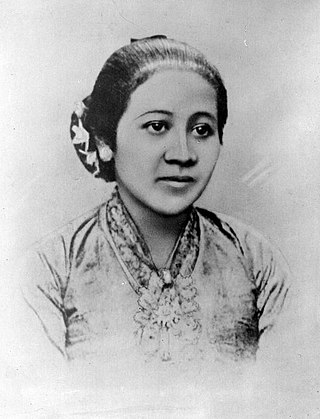
Raden Adjeng Kartini, also known as Raden Ayu Kartini, was a prominent Indonesian activist who advocated for women's rights and female education.
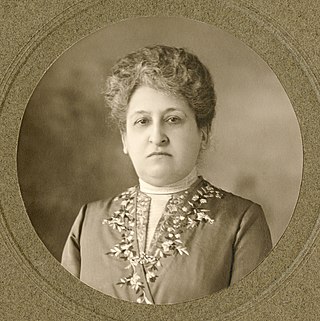
Aletta Henriëtte Jacobs was a Dutch physician and women's suffrage activist. As the first woman officially to attend a Dutch university, she became one of the first female physicians in the Netherlands. In 1882, she founded the world's first birth control clinic and was a leader in both the Dutch and international women's movements. She led campaigns aimed at deregulating prostitution, improving women's working conditions, promoting peace and calling for women's right to vote.

Elisabeth Carolina van Dorp was a Dutch lawyer, economist, parliamentarian and feminist.
Charlotte Brown Carmichael Stopes, also known as C. C. Stopes, was a British scholar, author, and campaigner for women's rights. She also published several books relating to the life and work of William Shakespeare. Her most successful publication was British Freewomen: Their Historical Privilege, a book which influenced and inspired the early twentieth century British women's suffrage movement. She married Henry Stopes, a palaeontologist, brewer and engineer. They produced two daughters, the eldest of whom was Marie Stopes, known for her advocacy of birth control.
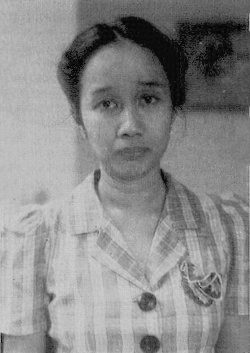
Maria Ulfah Soebadio Sastrosatomo, better known by her first married name Maria Ulfah Santoso, was an Indonesian politician and women's rights activist who served as Minister of Social Affairs under Prime Minister Sutan Sjahrir. She was the first Indonesian woman to receive a degree in law as well as the first female Indonesian cabinet member. Santoso, the daughter of a politician, became interested in women's rights after seeing numerous injustices in her youth. Despite pressure to become a doctor, she graduated with a degree in law from Leiden University in 1933; while in the Netherlands she also became involved in the Indonesian nationalist movement.
In the Netherlands, feminism began as part of the first-wave feminism movement during the 19th century. Later, the struggles of second-wave feminism in the Netherlands mirrored developments in the women's rights movement in other Western countries. Women in the Netherlands still have an open discussion about how to improve remaining imbalances and injustices they face as women.
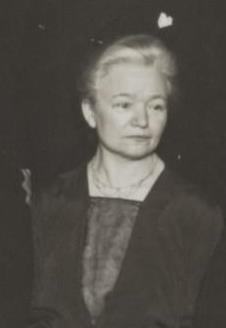
Jantina "Tine" Tammes was a Dutch botanist and geneticist and the first professor of genetics in the Netherlands.

Nielsine Nielsen was the first female academic and physician in Denmark. She graduated in 1885 and in 1889 she established her own medical practice and worked as a general practitioner. She was active in the gender equality movement through her work in Danish Women's Society.

Gloria Daisy Wekker is an Afro-Surinamese Dutch emeritus professor and writer who has focused on gender studies and sexuality in the Afro-Caribbean region and diaspora. She was the winner of the Ruth Benedict Prize from the American Anthropological Association in 2007.

Roosje Vos was a Dutch seamstress who became an activist in the push for labor protections of working women. Founding trade unions and editing journals, she advocated for suffrage, women's economic independence and an eight-hour work day. An active member of the socialist party and later the communist party, she ran for election to the Groningen Provincial Council and served from 1919–1927.

Petra Stienen (1965) is a Dutch human rights advocate with more than thirty years’ experience in diplomacy, international relations, civil society, social entrepreneurship and politics.

Mien van Wulfften Palthe was a Dutch feminist and pacifist. As a member of the Vereeniging voor Vrouwenkiesrecht and Women's International League for Peace and Freedom, she strove to secure enfranchisement for women and worked as an advocate for peace.
Cornelia Wilhelmina (Mineke) Bosch is a Dutch historian born in South Africa. She is Professor of Modern History at the University of Groningen in the Netherlands.

Bertha "Betsy" Bakker-Nort was a Dutch lawyer and politician who served as a member of the House of Representatives for the Free-thinking Democratic League (VDB) from 1922 to 1942.
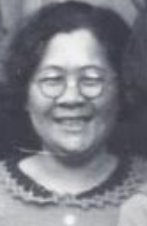
Betsy Thung Sin Nio was an Indonesian-Dutch women's rights activist, physician, economist and politician. Born into a wealthy and progressive Peranakan family of the 'Cabang Atas' gentry in Batavia, she was encouraged to obtain an education, which was unusual for Indonesian women at the time. After completing high school, she qualified as a bookkeeper, but – because social norms prevented women from doing office work – she became a teacher. After teaching briefly in an elementary school, in 1924 Thung enrolled at the Netherlands School of Business in Rotterdam to study economics. On graduating, she went on to earn a master's degree and a doctorate in economics. In 1932, she enrolled at the University of Amsterdam to pursue her medical studies.
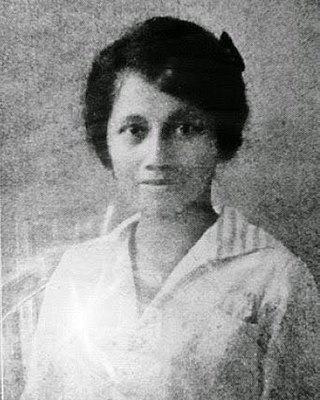
Maria Emilia Thomas, or better known as Marie Thomas, was the first Indonesian woman to become a physician. She received her diploma from the School of Training of Native Physicians in 1922. She went on to specialize in obstetrics and gynaecology and is considered the first Indonesian doctor to specialize in this field. She also established a midwifery school in Bukittinggi.
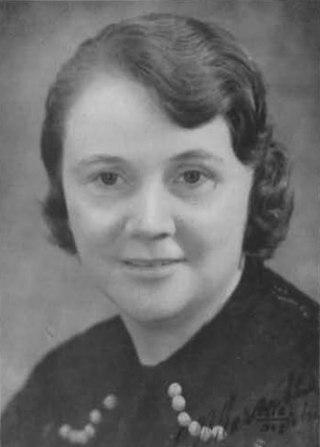
Cornelia Razoux Schultz-Metzer was a Dutch feminist and politician who was active in the Dutch East Indies. She was the first female member of the colonial legislature, the Volksraad, where she attempted to introduce women's suffrage.
Andi Depu was an Indonesian revolutionary and leader of the Mandarese people against the Dutch during the Indonesian National Revolution. She was the first female high king or Maharani in Indonesia.
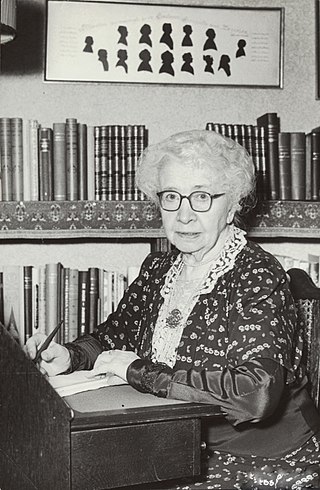
Maria Christina "Marie" van Zeggelen was a Dutch writer, educator and painter. She best known for her children's books and books about Indonesia. Van Zeggelen told a story from the perspective of the Indonesian population and children. She was an advocate for the rights of Indonesian women.














